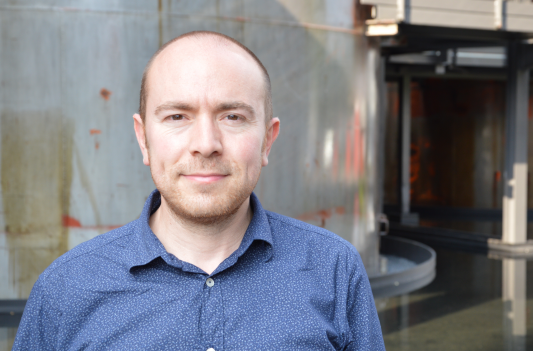BACK TO RESEARCH WITH IMPACT: FNR HIGHLIGHTS
BACK TO RESEARCH WITH IMPACT: FNR HIGHLIGHTS
August 2014
To meet a Nobel Prize winner is something special for every scientist. The early-career researcher Gökhan Ertaylan from the Luxembourg Centre for Systems Biomedicine (LCSB) at the University of Luxembourg got to meet 37 all at once when he attended the 2014 Lindau Nobel Laureate Meeting.
Gökhan Ertaylan, you had the opportunity to attend the 2014 Lindau Nobel Laureate Meeting as the only participant from Luxembourg. How was it meeting 37 Nobel Prize winners in Physiology and Medicine?
“It exceeded my expectations. Nowadays, Nobel Prize winners are similar to Oscar winners and best-selling authors – role models for future generations. In Lindau, I had the chance to see and hear the views and stories of the most renowned scientists of my generation first-hand, instead of the idealised version presented in the media.”
What did you learn about Nobel Prize winners at the Meeting?
“Nobel Prize Winners are also just people. They make mistakes just like the average scientist, maybe even more, but they never give up. All the Nobel Prize winners I met work on an idea, just because it interests them – not because they want personal fame or recognition. It was inspiring to see, for example, that the fiery scientific passion still burns in a 90-year old who has been working in science for over 50 years!”
At the LCSB, you investigate the properties of breast cancer cells that metastasize. Did you get any new ideas for your project in Lindau?
“Yes, definitely. Thanks to Elisabeth Blackburn from Australia (Nobel Prize winner 2009) I now have a better understanding of the ageing process in cells and tissue. This differs from person to person, and together with genetics and environmental factors, it could play and important role in the development of diseases such as breast cancer.
“Additionally, I realised that today’s natural sciences researcher cannot stick to the traditional scheme of a researchers if they want to be successful in their domain.”
Can you explain that in more detail?
“Traditionally, a researcher in biology or medicine is viewed as an expert in their field if they are able to develop a hypothesis, plan and carry out experiments and analyse results. At the same time, they have to identify and integrate new insights from journals, and ensure that their own discoveries are published.
“In the last 15 years new technologies have developed so fast, that we now produce way more results than we can analyse. We (natural sciences researchers) can now sequence the entire genome of a human being in one week, but we need weeks or even months to process the data. It’s the same with publications: In my domain e.g., over 14.000 articles were published in the last 12 months – that is over 40 new publications per day that I should theoretically read!”
As a scientist, what can you do about this congestion?
“Generally, we need strong collaborations and a good dialogue in the different disciplines. For the specialist literature we can use algorithms and semi-automatic collection processes from informatics. In data analysis, we use the computer as an extension of our brain, without ignoring the biological context. After that it is just as important to go back to the lab to test the results of the theoretical analysis.”
Which work motto did you take away from the Lindau Meeting?
“Work on something that really interests you. Do not look for excuses!”
Interview: Michèle Weber (FNR)
Translation: Emily Iversen (FNR)
This article was originally published on science.lu
RELATED HIGHLIGHTS
